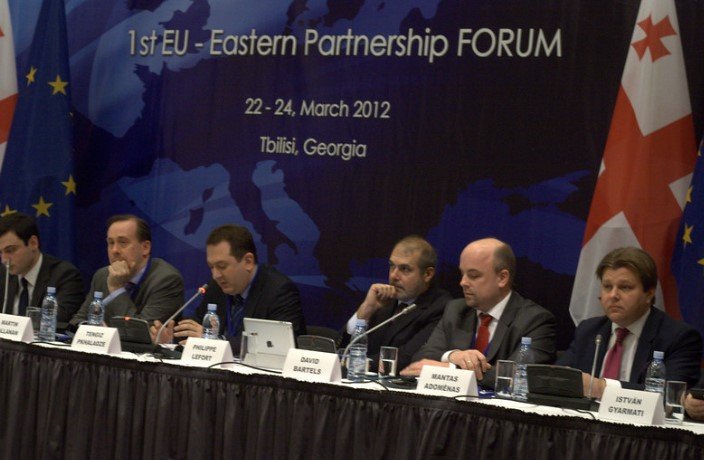The South Caucasus continues to witness a tumultuous political and social climate, with significant events unfolding in Georgia, Armenia, and Azerbaijan. From escalating protests in Tbilisi to regional geopolitical implications, here’s a comprehensive roundup of the latest updates from the three nations.
Protests Intensify in Tbilisi Amid Political and Social Frustrations
The 11th consecutive night of protests in Tbilisi brought together demonstrators around a partly assembled Christmas tree in front of Georgia’s parliament. But this wasn’t your typical festive scene. Protesters adorned the tree with photos of individuals reportedly injured by police during earlier dispersals. Four flags—a poignant mix of Georgia, Ukraine, the EU, and the United States—crowned the display, symbolizing their demand for a recommitment to European integration.
This wave of protests began on November 28, following Prime Minister Irakli Kobakhidze’s controversial announcement that Georgia would pause EU membership talks until 2028. Calls for new parliamentary elections have gained momentum, reflecting broader public dissatisfaction with the government’s stance on EU relations.
Masked individuals, allegedly government-affiliated, have disrupted these gatherings, targeting journalists and opposition leaders. Police presence during these incidents has sparked allegations of complicity, further eroding public trust.

Legal and Social Backlash Against Protest Crackdowns
Government responses have been swift and severe. Over 30 protesters face criminal charges, with 372 detained since the protests began. Administrative fines and arrests dominate the official approach, but accusations of police inaction and abuse persist.
Journalists are among the most vulnerable, bearing the brunt of these crackdowns.
- Beka Korshia, a journalist with Mtavari TV, was fined 2,200 GEL ($780) for allegedly defying police orders.
- Beslan Kmuzov of “Caucasian Knot” faced a similar fate, with his confiscated phone adding to concerns about press freedom.
Public figures and organizations are speaking out. Over 1,000 Georgian doctors signed a petition condemning the use of chemical agents against demonstrators. Meanwhile, media outlets in the Kvemo Kartli region have united to demand swift and impartial investigations into attacks on reporters.
International Concerns and Religious Opposition
The protests in Georgia are drawing international attention. Ivy League universities in the United States issued a solidarity statement, denouncing violence and urging authorities to uphold human rights. Meanwhile, the European Commission has flagged potential visa-free travel restrictions for Georgians unless specific EU recommendations are met.
Adding a theological dimension to the discourse, Metropolitan Grigol Berbikashvili criticized proposals to declare Orthodoxy the state religion. His call for upholding free will and expression highlights the intersection of faith and governance in Georgia’s ongoing crisis.
Broader Implications for the South Caucasus
While Georgia’s turmoil dominates headlines, regional dynamics in Armenia and Azerbaijan remain intertwined. Both nations are closely monitoring developments, as shifts in Georgia’s political alignment could influence broader South Caucasus geopolitics.
The protests highlight recurring themes in the region: press freedom under siege, civic unrest, and the tension between local governance and international obligations. As the situation evolves, the interplay of domestic actions and international reactions will shape the trajectory of the South Caucasus in the coming weeks.
